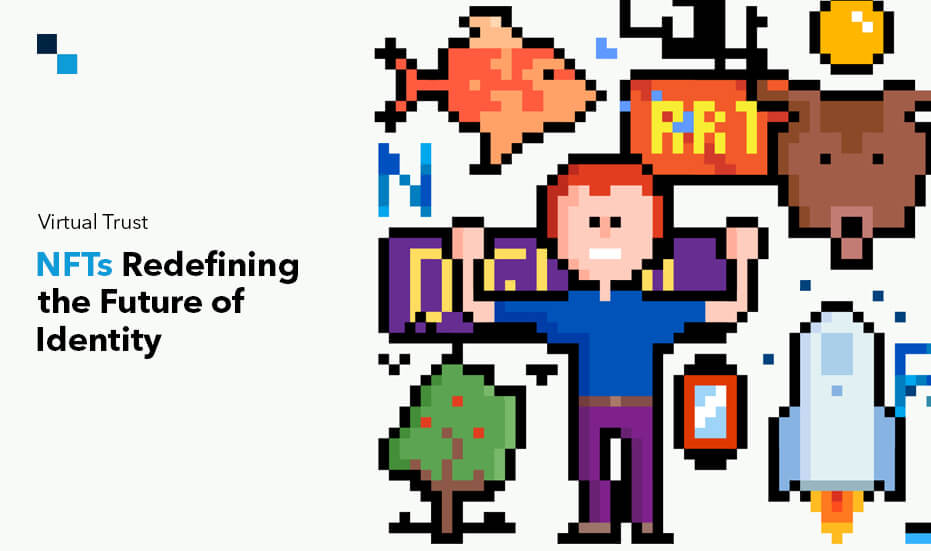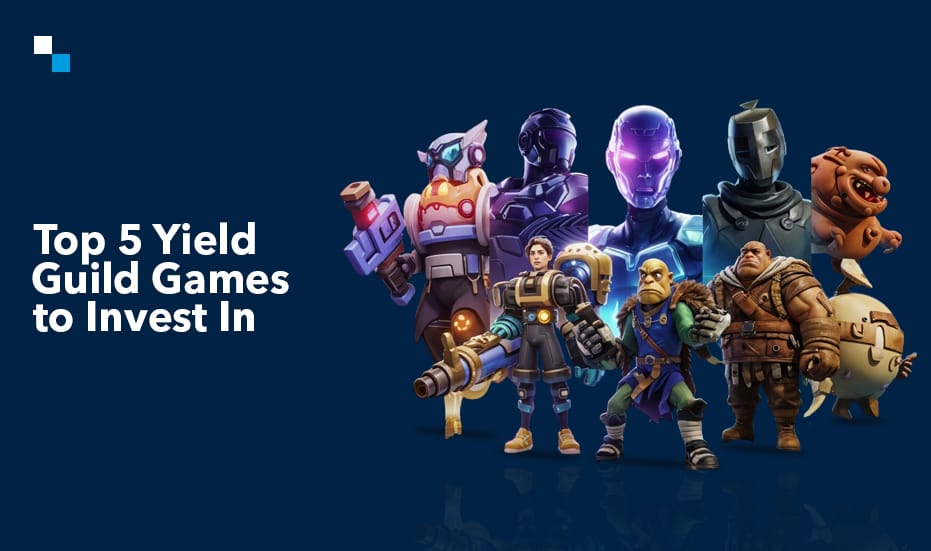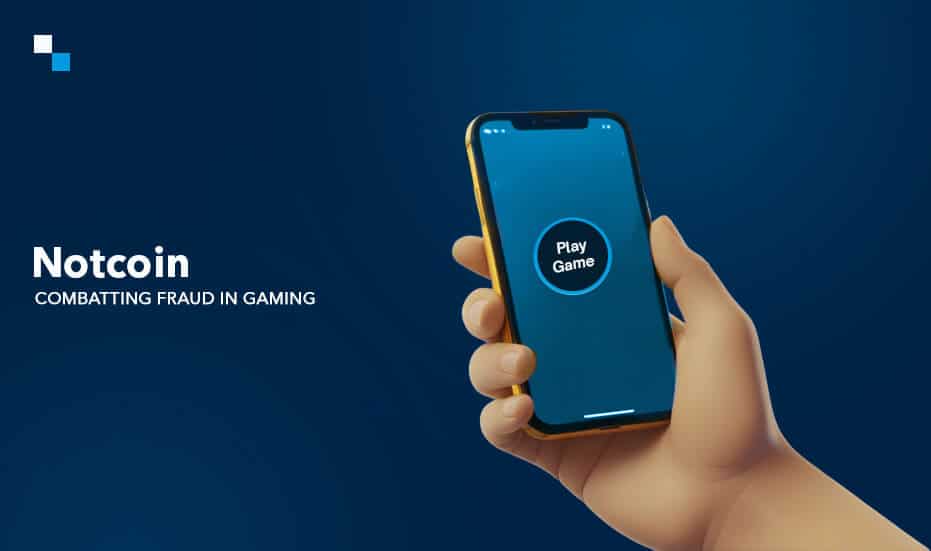
Understanding Stablecoin Development In Web3 Ecosystem: Essential 2024 Insights
December 28, 2023
Building Secure Peer to Peer Lending Platform Software
December 29, 2023In the digital age, the concept of identity has expanded beyond traditional forms such as passports and credentials. With the rise of blockchain technology, Non-Fungible Tokens (NFTs) have emerged as a revolutionary tool for establishing and verifying digital identity. NFTs offer unique opportunities for individuals to take control of their personal data and establish trust in a decentralized manner.
This article explores the future of identity in the context of NFTs, delving into NFT marketplace development, the concept of digital identity, and how NFTs are influencing the way we perceive identity.
Build an NFT Marketplace – A Gateway to Digital Identity
One of the key drivers behind the future of identity lies in the development of NFT marketplaces. NFT marketplaces serve as platforms where individuals can buy, sell, and trade digital assets represented as NFTs. These assets can include artworks, collectibles, virtual real estate, and even digital passports and credentials.
By leveraging blockchain technology, you can build NFT marketplace to provide a secure and transparent environment for transactions. Each NFT holds a unique digital signature, making it tamper-proof and easily verifiable. This ensures the authenticity and provenance of digital assets, further strengthening the notion of digital identity.
What is Digital Identity?
Digital identity refers to the representation of an individual or entity in the digital world. It encompasses various aspects such as personal data, online activities, and credentials. Traditionally, digital identity has been tied to centralized systems and authorities, leading to concerns over data privacy and security. However, with NFTs, individuals have the opportunity to take control of their digital identity in a decentralized manner. No wonder, when you build an NFT marketplace, you participate in technological innovation unknowingly.
NFTs can serve as digital passports and credentials, allowing individuals to authenticate their identity without relying on intermediaries. These digital assets can hold information such as personal details, educational qualifications, and professional certifications. By storing this information on the blockchain, individuals can have complete control over their data, while still maintaining the ability to share it when required.
How NFTs Are Influencing Digital Identity?
Isn’t it fascinating how NFTs are reshaping the concept of digital identity? In the current times, when everything seems to be rapidly evolving, NFTs have emerged as game-changers. Not only do they revolutionize the way we perceive and authenticate digital assets, but they are also transforming the way we express ourselves and curate our digital persona. Here’s how:
- Ownership and Control
NFTs empower individuals to truly own and control their digital identity. Instead of relying on centralized entities to store and manage personal data, individuals can store their information securely in the form of NFTs. This puts the power back into the hands of the individual, allowing them to decide who has access to their data and when it is shared. - Trust and Transparency
NFTs bring an unprecedented level of trust and transparency to digital identity. Each NFT is associated with a unique digital signature that can be verified by anyone. This eliminates the need for trust in intermediaries and allows for seamless verification of credentials. Whether it’s proving qualifications for a job application or verifying one’s identity for medical purposes, NFTs offer a transparent and efficient solution. - Portability and Interoperability
NFTs can be easily transferred and accessed across different platforms and ecosystems. This means that individuals can carry their digital identity with them, regardless of the services or platforms they use. Whether it’s accessing online banking services, logging into social media accounts, or even entering virtual worlds, NFTs serve as a universal passport, simplifying the process of digital identity verification. - Increased Security and Privacy
With NFTs, individuals can mitigate the risks associated with centralized data storage. By leveraging blockchain technology, sensitive information can be encrypted and stored in a tamper-proof manner, reducing the likelihood of data breaches. Additionally, as individuals have complete control over their data, they can choose what information to share and with whom, ensuring a higher level of privacy.
Governments and NFTs for Digital Identity
In this digital age where our lives are increasingly intertwined with technology, the need to protect and manage our digital identities has become crucial. Governments have recognized this and are exploring the potential of non-fungible tokens, or NFTs, to address this challenge in a friendly and innovative way. NFTs, which are unique digital assets that can be verified on the blockchain, hold great promise when it comes to creating secure and verifiable digital identities.
Let’s explore real-life examples of NFT marketplace development:
Governments Embracing NFTs
Governments around the world are also recognizing the potential of NFTs for digital identity. By leveraging blockchain technology, they aim to create reliable and tamper-proof systems for identification. Let’s explore a few real-life examples of how governments are using NFTs for digital identity:
- Estonia’s E-Residency Program
Estonia, known for its digital innovations, introduced the e-residency program, allowing individuals to become Estonian e-residents. This program utilizes blockchain-based NFTs to securely identify and authenticate individuals. E-residents can then access various services and engage in business activities within Estonia, all while residing in a different country. - South Korea’s Blockchain-based Certification System
South Korea has implemented a blockchain-based certification system that issues digital certificates to its citizens. These certificates are NFTs that contain graduation diplomas, professional licenses, and other important credentials. By leveraging NFTs, South Korea aims to reduce fraud and simplify the verification process for individuals and organizations.
Building the Future: NFT-Based Identity Systems
The future of identity lies in the development of robust NFT-based identity systems. These systems will provide individuals with a secure and convenient method of proving their identity in the digital realm. To build such systems, it is important to focus on the expertise of NFT marketplace development partner.
- User-Friendly Interfaces: NFT-based identity systems should be intuitive and easy to use, ensuring that individuals can seamlessly navigate and interact with their digital credentials.
- Collaboration: Governments, technology companies, and blockchain developers should collaborate to establish standardized protocols for NFT-based identity systems. This will ensure interoperability and foster adoption on a global scale.
- Education and Awareness: Educating individuals about the benefits and risks associated with NFT-based identity is crucial. Building trust and awareness will encourage the widespread adoption of these innovative solutions.
Conclusion
The future of identity lies in the revolutionary capabilities of NFTs. These unique digital assets provide individuals with ownership, control, trust, and portability over their digital identity. NFT marketplace development serves as a gateway to this future, allowing individuals to buy, sell, and trade their digital passports and credentials securely. With the increasing adoption and advancements in blockchain technology, NFTs are poised to transform the way we perceive and manage our digital identities.
So, are you ready to embrace the future of identity with NFTs? Let Antier be your partner. Together we can build NFT marketplace and also create a system for managing digital identities flawlessly.



